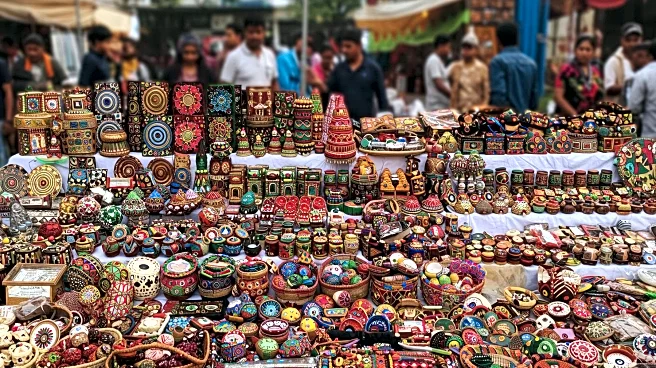What's Happening?
Prime Minister Narendra Modi, during his Independence Day speech, praised women's self-help groups (SHGs) for their remarkable achievements in entrepreneurship and exports. He noted that these groups have transitioned from being marginalized to becoming significant contributors to the economy, with their products reaching international markets. Modi emphasized the importance of creating opportunities and removing barriers for local talent, citing the example of India's growing toy exports.
Why It's Important?
The success of women's self-help groups reflects a broader shift towards empowering women in India, contributing to economic growth and social change. By supporting these groups, the government is fostering entrepreneurship and enabling women to participate more actively in the economy. This development not only boosts local industries but also enhances India's global trade presence. The focus on removing barriers for local talent aligns with efforts to strengthen domestic production and reduce reliance on imports.
What's Next?
The government is likely to continue supporting women's self-help groups through policies that facilitate access to resources and markets. This could involve expanding training programs, providing financial assistance, and enhancing infrastructure to support their growth. As these groups gain more recognition, they may play a larger role in driving economic development and social empowerment across India.
Beyond the Headlines
The rise of women's self-help groups highlights the potential for grassroots movements to drive significant economic and social change. Their success underscores the importance of inclusive policies that empower marginalized communities and promote sustainable development. This trend may inspire similar initiatives in other sectors, contributing to a more equitable and dynamic economy.










